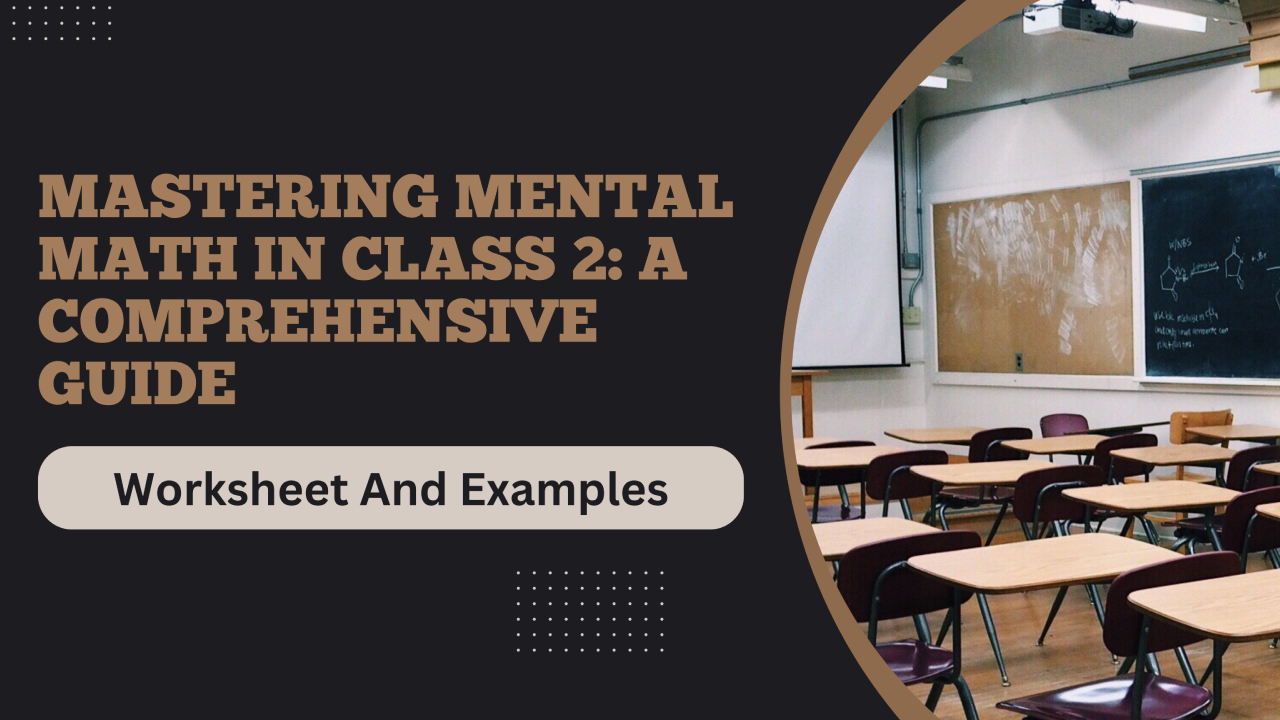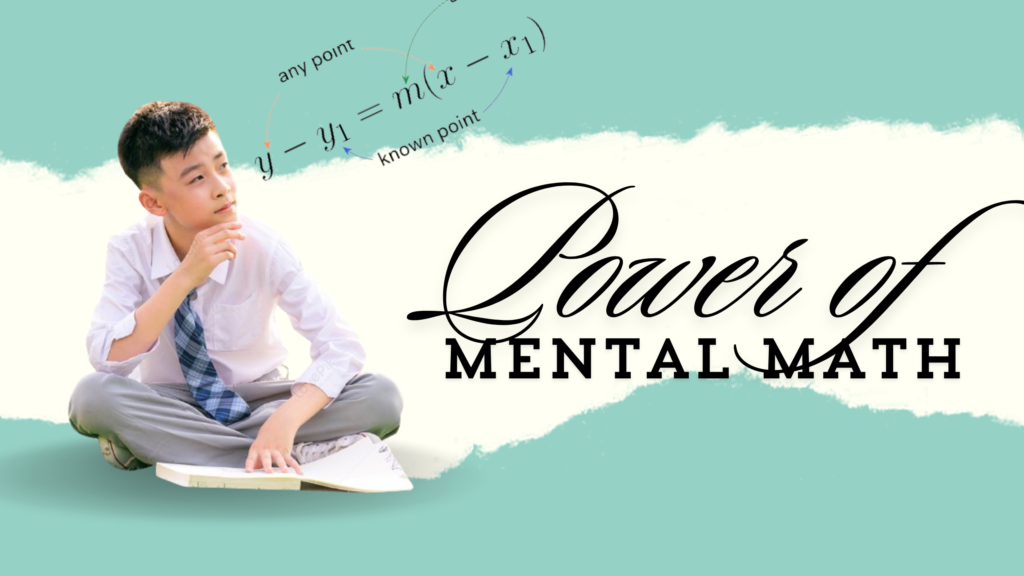Mental Math of Class 2: Worksheet And Examples
Young children can be taught to calculate mentally, which has a long-term impact on their performance in classes. For example, mental arithmetic for the second grade involves quick and accurate calculations within their minds without relying on calculators or written methods. Confidence is not the only advantage of this capacity but also it enhances problem-solving skills. In this blog, we will explore different techniques, strategies, and activities that can help children in class 2 understand how to do mental math better. Besides that, we will discuss why mental math should be taken seriously and how it can affect students both academically and in real life. Importance of Mental Math Besides that, we will discuss why mental math should be taken seriously and how it can affect students academically and in real life. 1. Enhances Numerical Fluency The overall cognitive development of any child is affected by his ability to perform F. Mental maths helps youngsters become more fluent numerically so they can quickly see patterns and relationships between numbers. This fluidity is vital when tackling more intricate mathematical concepts in higher grades. 2. Boosts Confidence Moreover, solving math problems orally makes children feel proud of themselves as well as boosts their self-confidence. Therefore, encouraging them through positive reinforcement further motivates them to engage more actively in mathematics-related activities. 3. Improves Problem-Solving Skills An analytical approach leading to the solution arises from thinking critically about mental arithmetic; this encourages good problem-solving skills through logical thinking 4. Supports Everyday Math Skills Mental arithmetic is an important life skill; it helps to calculate change in a shop and split bills. It involves performing everyday mathematical operations with minimal reliance on electronic devices. 5. Reduces Math Anxiety Math anxiety can be reduced by regular mental math practice. As students become more familiar with numbers and basic arithmetic, there will be less tension or panic associated with mathematics tasks. Techniques for Mastering Mental Math of Class 2 These are some mental techniques that Class 2 students can use to improve their abilities: 1. Counting On and Back Counting up and down is a basic mental technique where one starts from some given number and then counts either forwards or backward from it. This method is especially useful in addition and subtraction exercises. Example: To add 7 + 5, start from 7 and count on five steps: 8, 9, 10, 11, 12. So, 7 + 5 = 12. 2. Using Number Bonds A number bond consists of two numbers that sum up to give another number. Knowledge of these bonds facilitates the process of splitting numbers to subject them to the operations of addition or subtraction. Example: For the number 10, the number bonds are (1, 9), (2, 8), (3, 7), (4, 6), and (5, 5). 3. Doubles and Near Doubles Recognizing doubles (e.g., 5 + 5) and near doubles (e.g., 5 + 6) makes it easier for students when they add numbers together. By adding or subtracting one, pupils can memorize double facts rapidly while adapting them for near doubles. Example: To solve 6 + 7, think of it as 6 + 6 + 1. Since 6 + 6 = 12, adding 1 gives 13. So, 6 + 7 = 13. 4. Making Ten A strategy for making ten is helpful in addition problems. In this technique, students break down numbers to make a ten and then add the remaining. Example: To add 8 + 5, think of 8 + 2 = 10, and then add the remaining 3. So, 8 + 5 = 13. 5. Skip Counting Skip counting is when you count by numbers other than one like twos, fives or tens. This method aids in multiplication, division, and understanding number patterns. Example: For multiplication, to find 4 x 3, skip count by fours: 4, 8, 12. So, 4 x 3 = 12. 6. Using Known Facts Using known facts such as addition and subtraction up till ten for instance can help with speeding up mental calculations. By encouraging students to memorize these facts; it will create a solid foundation for them to apply more complex operations. 7. Breaking Down Numbers It becomes easier to solve mental math problems if numbers are broken down into smaller more manageable parts. For bigger numbers, this method also called decomposition is especially useful. Example: To subtract 15 – 7, break it down: 15 – 5 = 10, then 10 – 2 = 8. So, 15 – 7 = 8. 8. Using the Commutative Property The addition property of commutation says that summation does not change despite how one rearranges numbers. It is important to teach pupils the concept as it simplifies reordering figures during computations. Example: To add 3 + 9, students can think of it as 9 + 3 if that is easier for them. Activities and Games for Practicing Mental Math Mentally solving math questions becomes fun when students are involved in engaging activities and games. Here are a few examples: 1. Math Flashcards Make flashcards that have addition, subtraction, and multiplication sums on them. Students should be asked to solve them rapidly with accuracy. Flashcards help remember mathematical facts fast leading to speed improvement 2. Math Bingo Use math problems to play a game of bingo. Every student will be given a bingo card with numbers and the teacher will call out math problems which the students should solve and put their corresponding answers on their cards 3. Number Line Hop Have students hop on a number line to arrive at the right answer for math questions. Counting on, counting back, and skip counting are reinforced through this physical activity. 4. Math Races Plan mathematics races in which learners have to solve a set of mathematical problems as fast as possible. This competitive element adds enthusiasm thereby motivating them to enhance their speed and precision. 5. Interactive Math Apps There are numerous educational applications designed to help students practice mental mathematics skills. These apps provide interactive ways that engage students when practicing … Read more



